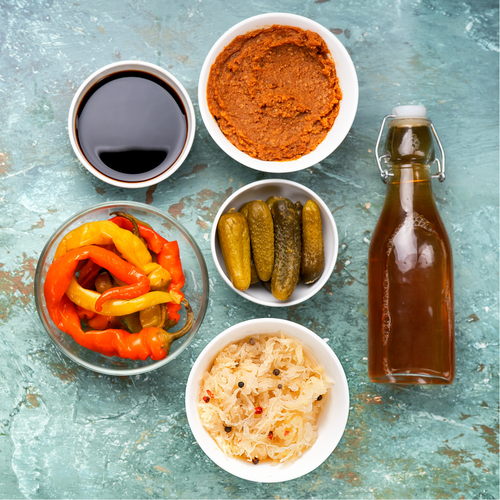These represent vitamins, minerals and trace elements, and while it is easy to cover one's needs in proteins, lipids and carbohydrates, which represent macronutrients, the same is not true for micronutrients.
Indeed, current diets no longer allow us to meet our body's micronutrient needs, and deficiencies are becoming increasingly common. For example, iron deficiency affects more than 30% of the world's population according to the WHO, and the most common deficiencies in France concern magnesium, calcium, zinc, iron, and vitamin D.
Why have we arrived at a food supply that no longer fulfills all of its functions?
The causes are simple, and unfortunately, once again, anthropogenic in nature. Three factors are primarily responsible for the nutrient depletion of our food:
- Cultivation methods: These have changed significantly in recent decades. They are becoming more and more intensive, and we are increasingly using pesticides.
- Cooking habits: baking, microwave, barbecue, blender, extractor... All these ways of cooking actually denature raw foods, and we observe significant losses in fiber and micronutrients.
- The choice of foods: and more particularly the appetite for ultra-processed products, which have an impoverished nutritional profile.
What is striking in our society today is the abundance of nutritional deficiencies, in a world where it has never been easier to access food. This can be explained by a lack of understanding of the human body, how it works and the diet necessary for it to function properly, but also by the deterioration in the nutritional quality of food that has been occurring in recent decades.
Between 1950 and 2016, the vitamin C content of our fruits and vegetables was divided by 100, that of vitamin A by 21 and that of calcium by 4. Today's meat is half as rich in iron as in 1950.
According to one study, women aged 18 to 50 who consume an average of 1,736 kcal per day actually need 3,272 kcal per day to meet their iron intake and 4,000 kcal per day to cover their vitamin E intake, and this difference is due to the nutritional depletion of our food. Technically, we would have to choose between adequate micronutrient intake and energy intake that allows us to maintain a stable weight, which is obviously not sustainable.
How can this be overcome? How can we restore adequate intake?
#1 - Eat real food, and limit processed foods.
This is the basis for finding a balance in your micronutrient intake; you need to consume products that naturally contain the most. Plates have changed considerably recently: the nutritional density, fiber, and micronutrient content of real foods have given way to the energy density, sodium, sugar, and fat content of processed foods. This is therefore the first lever to play on. But as we have seen, even raw products have lost quality due to certain factors, so we must play on these...
#2 - Consume organic products.
They won't have been impacted by harmful growing methods, and won't be degraded by pesticides. Their nutritional quality will therefore be superior. If this represents too high a cost, you can prioritize organic foods: fruits and vegetables eaten with the skin, dairy products, olive oil, and whole grains that contain the entire grain.
#3 - Be careful when preparing food!
Opt for gentle cooking methods, which denature fiber and micronutrients less: slow and gentle cooking is better than fast and intense cooking. Also, beware of false friends: while smoothies are very fashionable, it's always better to eat whole fruits to preserve all their nutritional quality.
#4 - Preserve your fruits and vegetables.
To reap all the benefits of fruits and vegetables, be sure to consume them at the correct ripeness, keep them away from light, and keep in mind that it's best to eat them with the skin on whenever possible. Indeed, a large portion of vitamins and minerals are concentrated in the skin.
It's difficult to navigate healthy eating habits because the subject is so vast, and sometimes we need a little help. At DIJO, we've created DIETARY CONSULTATION , a session dedicated to your personal issues with a dietitian, to help you see things more clearly and find answers to your questions. Let's define together the objectives that will allow you to regain vitality, comfort and energy, through a healthy diet that leaves room for pleasure!
Sources:
[1] Mayer, A. (1997). Historical changes in the mineral content of fruits and vegetables. British Food Journal , Vol. 99 No. 6, p. 207-211. https://doi.org/10.1108/00070709710181540
[2] Davis DR, 2009. Declining fruit and vegetable nutrient composition: what is the evidence? Hortscience , 44, 15-19.
[3] Dangour AD, Dodhia SK, Hayter A, Allen E, Lock K, Uauy R. Nutritional quality of organic foods: a systematic review. Am J Clin Nutr . Sep 2009;90(3):680‑5.















